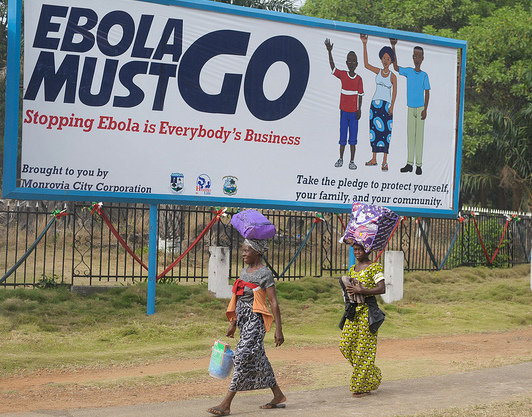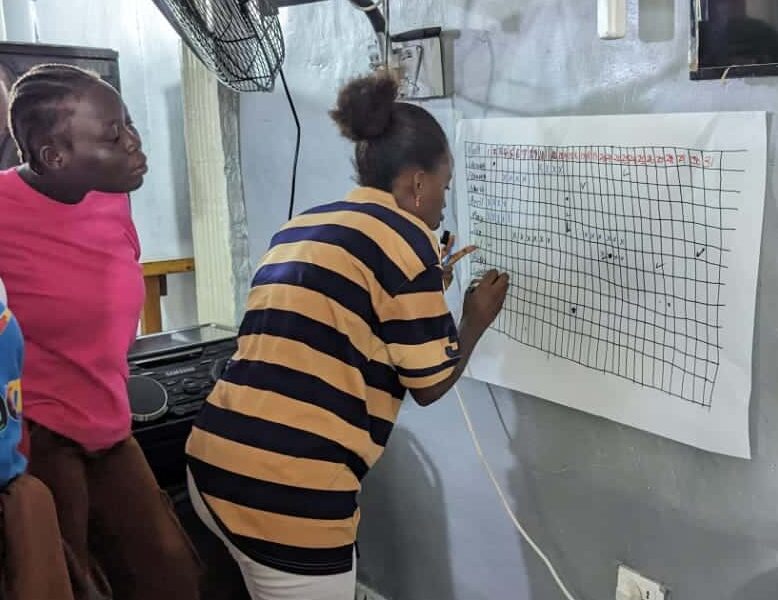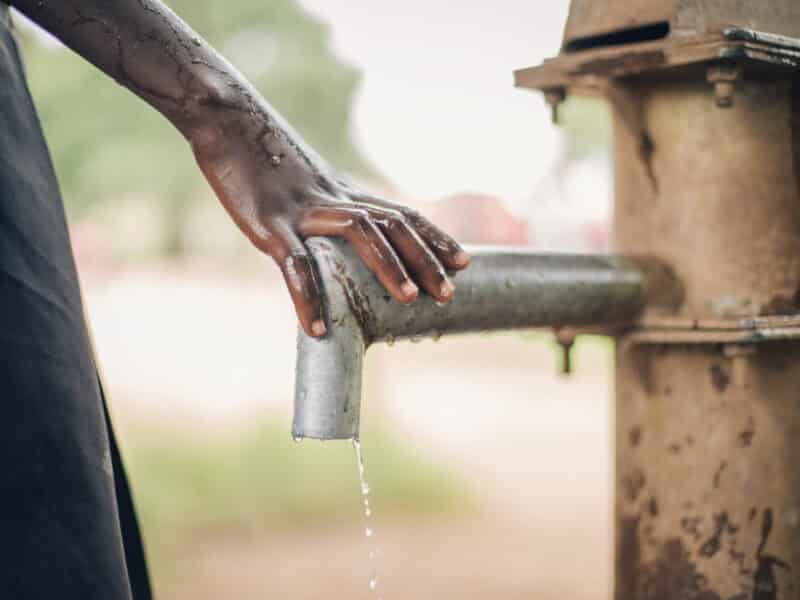This post was written by Anna Helland, senior program officer II at the Johns Hopkins Center for Communication Programs. Anna worked in Liberia during the 2014 Ebola crisis. As part of the Breakthrough ACTION project, CCP will soon begin work in the DRC. For a collection of Ebola resources, visit our Ebola Communication Network.
When I heard the recent news that the Ebola virus had spread from a rural area in the Democratic Republic of the Congo (DRC) to Mbandaka, a city of one million people, I immediately recalled my experience during the 2014 Ebola outbreak in West Africa. While visiting Liberia in April 2014, when cases had been identified the month before in a county bordering Guinea, I heard health experts incorrectly assume the virus would run its course and be contained relatively quickly, as had happened previously in rural areas of the DRC.
It’s still too early to tell whether the DRC will experience a small Ebola outbreak or one like we faced in 2014 when more than 11,000 people in three countries ultimately died.
It is true that Ebola starts slowly. In Liberia, this meant the number of cases rose only slightly from March into June and July. But by August, there were upwards of 60 new cases a day, resulting in the first regional outbreak emergency. When I next came to Liberia in October, the number of new cases had peaked and, while it wasn’t obvious to any of us yet, was already on a downward slope toward zero.
That path to zero, however, required an enormous effort from all – service providers, communities and their leaders, especially those who were at the forefront of changing behaviors that had been instilled and cemented within their culture for generations. Washing and caressing the body of a deceased family member is part of loving tradition and is considered the proper send off to the afterlife. It also turned out to be a highly effective way to transmit the virus. What a shock to see strangers in even stranger outfits taking over the burial tradition with odd and new ways that were completely counter to long-standing practices and beliefs. What a shock to realize that helping a sick neighbor or a sick family member could be your own death sentence. What a shock to see hospitals unable to take in any more patients and then to witness dead bodies appearing in the streets of Monrovia.
That shock paralyzed communities for a time. Just as Ebola started slowly, the community response to it began slowly as well. But communities soon realized that they could not remain immobile and began to act, putting in place rules and structures for new behaviors and changes in norms that prevented further spread and contributed to that momentum of fewer and fewer new cases.
And this most likely will happen in DRC, as communities hear and watch, perhaps paralyzed for a time, and then act. But without the right information, without the confidence that they have the power to make changes that can save lives, without the support of trusted leaders and assistance from their service providers and community groups, the citizens of Bikoro, which is where the current outbreak appears to have started, and Mbandaka may not have the information and tools they need to prevent the spread of Ebola.
It’s here that communication can save lives. Social and behavior change communication efforts are the key to empowering action and fostering change. Such efforts provide accurate information, use powerful persuasion and depend on community-developed and trusted solutions that strengthen community ownership and engagement. In turn, communities are better able to respond to such efforts, make them their own and build upon them to change the behaviors that put them most at risk for Ebola transmission.
When CCP and others arrived in Liberia, we provided people with accurate, timely information about the disease, how to protect themselves from it and how to organize themselves to make the right decisions when new cases were found. We created local radio spots to share this information and updated them as the epidemic evolved. Partners developed community health worker trainings and worked with local chiefs to mobilize their leadership role in the response. We created listening groups to get a quick pulse check on key issues, including one surrounding a trial for a new Ebola vaccine (while still in testing, it is being used in the current DRC outbreak).
Through a series of tools, CCP continues to provide resources and guidance for planning, developing and implementing SBCC programming that can empower action and foster change – and in turn save lives:
- The Ebola Communication Network serves as a clearinghouse for SBCC references, materials, and messages primarily developed during the West Africa Ebola crisis and available for adaptation and use, with materials in English and French.
- The Ebola Preparedness Implementation Kit provides an SBCC roadmap for responding to the threat of an Ebola outbreak.
- The SBCC for Emergency Preparedness Implementation Kitoutlines key considerations for SBCC activities in emergency situations.
While communities are key to any outbreak response, SBCC and the materials and resources CCP has developed can help to unlock the community’s potential to quickly act and respond.
Learn more about CCP’s response to the 2014 Ebola outbreak here.





